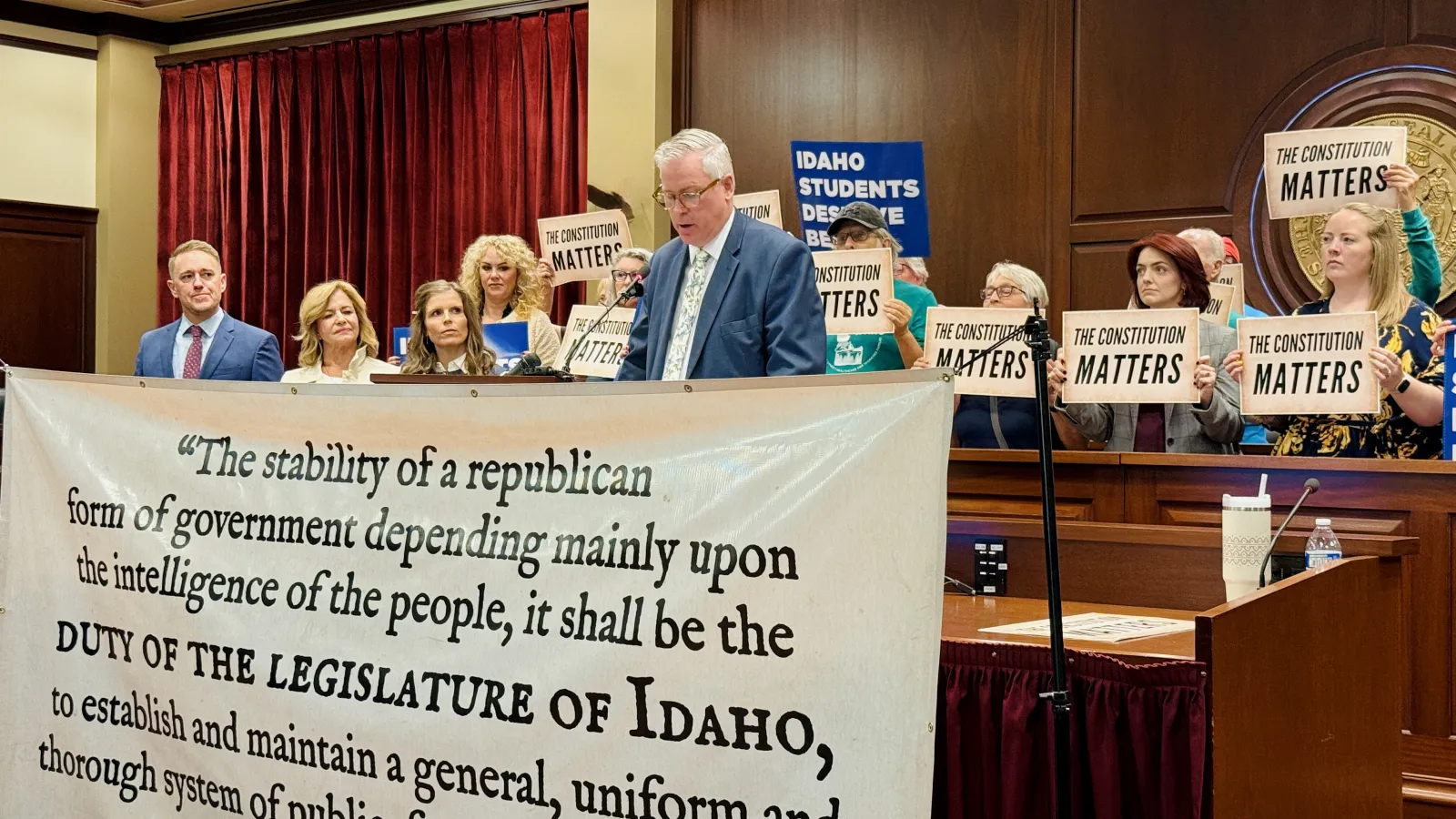The back story: The lawsuit filed with the Supreme Court is built on the premise that the Idaho Constitution provides for “a uniform and thorough system of public, free common schools.” IEA and other petitioners are arguing that House Bill 93, which created the state’s new voucher tax credit, creates a separate, unaccountable system using taxpayer money. When the new system goes into effect on Jan. 15, parents and guardians may apply for tax credits worth up $5,500 per student (up to $7,000 for special needs students) to pay toward private school costs.
What’s next: Monday will be a milestone in the lawsuit: Nov. 10 is the deadline for the State of Idaho to respond to the lawsuit.
Then what?: Once the state files its response, IEA and fellow petitioners will have seven days to provide their own response. A hearing for the lawsuit — if the Idaho Supreme Court decides one is needed — will be scheduled after the petitioners’ response is filed.
What the Supreme Court will do: There are no guarantees on how the Court will address the lawsuit, but the early signs point toward a hearing.
- “The Idaho Supreme Court moved quickly in September to get the paperwork rolling on this case,” said IEA Executive Director Paul Stark. “That was a promising sign. We’re confident in our position that the Idaho Constitution mandates a single public school system — not dueling public and private systems. We believe the court is motivated to address the constitutionality of vouchers before the program officially opens on Jan. 15, 2026.”
What to watch: IEA will know more after Monday. Keep an eye on IEA Reporter and social media for breaking news about the lawsuit and ongoing coverage of its progress.
Discover why IEA members are taking on private school vouchers.

